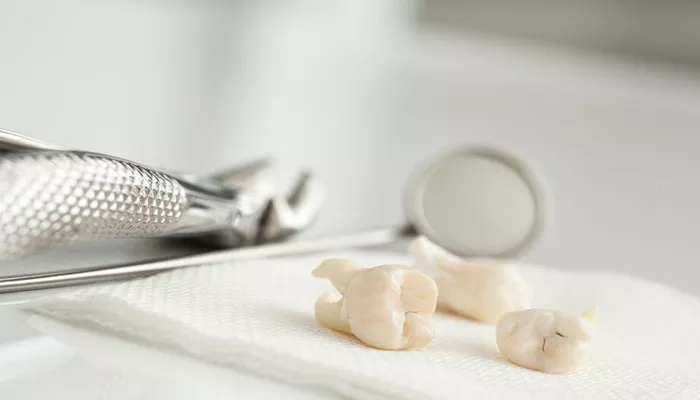Wisdom teeth, often referred to as the third molars, are the last teeth to erupt in the human mouth. They usually appear between the ages of 17 and 25, but their eruption can vary widely among individuals. Partial eruption of wisdom teeth, where the tooth only partially emerges through the gum line, is a common occurrence. Whether or not these partially erupted wisdom teeth should be removed is a question that many patients ask their dentists. In this guide, we will explore the reasons for and against removing partially erupted wisdom teeth, the potential complications associated with them, and the steps involved in their removal.
Understanding Partial Eruption of Wisdom Teeth
Partial eruption occurs when a wisdom tooth does not fully emerge through the gum line. This can lead to a situation where only part of the tooth is visible, while the rest remains covered by gum tissue. This partial emergence creates a gap that allows food particles, bacteria, and other debris to accumulate, making it difficult to clean properly. Over time, this accumulation can lead to infection, inflammation, and other oral health problems.
Potential Complications of Partial Eruption
Pericoronitis: This is an inflammation of the gum tissue surrounding a partially erupted tooth. It can cause severe pain, swelling, and difficulty opening the mouth. Pericoronitis often requires antibiotic treatment and, in some cases, surgical removal of the wisdom tooth.
Cyst Formation: Sometimes, a fluid-filled sac (cyst) can form around an unerupted or partially erupted wisdom tooth. These cysts can grow large and destroy surrounding bone and teeth, potentially leading to more complex surgical procedures.
Damage to Adjacent Teeth: Partially erupted wisdom teeth can push against adjacent teeth, causing them to shift or become crowded. This can disrupt the alignment of the teeth and lead to bite problems.
Difficulty in Cleaning: As mentioned earlier, partially erupted wisdom teeth create a difficult-to-clean area, which can lead to plaque accumulation, tooth decay, and gum disease.
Reasons to Consider Removal
Given the potential complications associated with partially erupted wisdom teeth, many dentists recommend their removal.
Here are some reasons why removal may be the best option:
Prevention of Infection: By removing partially erupted wisdom teeth, you can prevent the development of pericoronitis and other infections.
Avoidance of Cyst Formation: Early removal can prevent the formation of cysts, which can cause extensive damage to surrounding bone and teeth.
Preservation of Adjacent Teeth: Removing partially erupted wisdom teeth can prevent them from damaging adjacent teeth, preserving your overall dental health.
Improved Oral Hygiene: With partially erupted wisdom teeth removed, you can maintain better oral hygiene, reducing the risk of tooth decay and gum disease.
Evaluation Before Removal
Before deciding to remove partially erupted wisdom teeth, your dentist will conduct a thorough evaluation. This includes:
Clinical Examination: Your dentist will visually inspect the wisdom teeth and surrounding tissues. They will check for signs of infection, inflammation, or damage.
Radiographic Assessment: Your dentist will take X-rays or other imaging studies to evaluate the position, size, and shape of the wisdom teeth. This helps them assess the difficulty of removal and potential risks.
Medical History Review: Your dentist will review your medical history to check for any underlying health conditions that may affect the surgery, such as bleeding disorders or diabetes.
The Removal Procedure
The removal of partially erupted wisdom teeth is usually performed by an oral surgeon or a dentist with specialized training in oral surgery. The procedure may involve:
Local Anesthesia: To numb the area around the wisdom tooth and reduce discomfort during the surgery.
Incision: Making a small cut in the gum tissue to expose the tooth and surrounding bone.
Bone Removal: Removing any bone that covers or obstructs the tooth.
Tooth Extraction: Gently loosening and removing the tooth from its socket.
Stitching: Closing the surgical site with stitches to promote healing and reduce the risk of infection.
Postoperative Care: Providing instructions for post-surgery care, including diet, pain management, and oral hygiene practices.
Recovery After Removal
After the removal of partially erupted wisdom teeth, you can expect a period of recovery. The length and severity of recovery depend on the complexity of the surgery and your individual healing capacity. Here are some tips for a smooth recovery:
Rest: Allow yourself time to rest and recover after surgery. Avoid strenuous activities for a few days.
Diet: Stick to a soft, liquid, or blenderized diet for the first few days. Gradually introduce softer foods as you heal.
Pain Management: Use prescribed pain medication as directed to manage discomfort. Avoid alcohol and certain medications that can interfere with healing.
Oral Hygiene: Gently clean your mouth with a saltwater rinse or antiseptic mouthwash. Avoid brushing the surgical site for a few days until it heals.
Follow-Up Appointments: Schedule follow-up appointments with your dentist to monitor your healing progress and address any concerns.
Conclusion
The decision to remove partially erupted wisdom teeth is a complex one that requires careful consideration of individual oral health conditions and potential complications. By understanding the reasons for removal, the evaluation process, the removal procedure, and postoperative care, you can make an informed decision that aligns with your dental health goals. Remember, early intervention can prevent serious complications and preserve your overall oral health. Consult your dentist for personalized advice and recommendations tailored to your unique situation.
Related topics:

